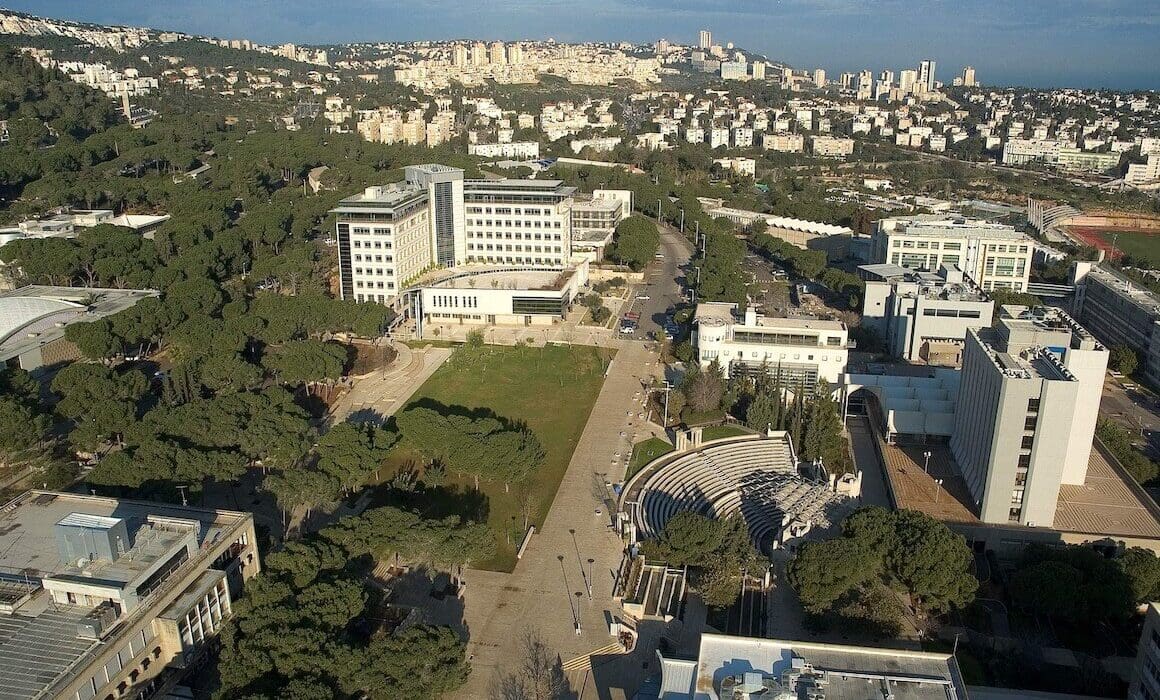Immediately following the horrific terrorist attacks in Israel by Hamas on October 7, the Technion – Israel Institute of Technology sprang into action to support its student body and faculty – some 2,500 of whom were called to serve in the Israel Defense Forces (IDF) – and assist thousands of people affected and displaced by the war.
Of those students serving in the reserves, Technion President Professor Uri Sivan said, “It’s important that each and every one of them knows that the entire Technion community is mobilized and harnessed for their sake. For their benefit, we established a special assistance fund together with friends of the Technion in the U.S. and around the world.” Technion students who serve at least 30 days in the IDF will receive a grant of NIS 6,000 (about $1,564) for assistance with tuition and rent.
Located in Haifa, about 18.5 miles from the Lebanon border, the main threat to the Technion campus emanates from the prospect of escalation by Hezbollah. Situated on the top of Mt. Carmel, the university is vulnerable to the 160,000 rockets and missiles Hezbollah has amassed on the border.
Within the first week after October 7, the administration took steps to identify security needs, particularly as thousands of students, including internationals, are residing on campus despite the academic year for all Israeli universities having been postponed. Labs that contain sensitive materials and gases have been secured; parallel emergency communication channels are being set up in the event of a breakdown or attack on digital channels; drills and simulations were conducted to identify vulnerabilities that need to be addressed; and a situation room was established where the Technion command team meets daily.
Technion students living in the South who were evacuated with nothing but the clothes on their back were provided housing, food, and necessities. Dozens of families evacuated from northern and southern Israel are being housed at the Technion. Many students not called into service are supplying families who have become refugees from their own homes and communities with food, medical supplies, toiletries, clothes, and toys. They are supporting soldiers on the front lines, and people in surrounding Haifa neighborhoods, organizing volunteer efforts and resources. Additionally, students, faculty, and staff are helping with the fall harvest in Israel’s greenhouses.
“The military backgrounds of practically all of us come to be very handy in such a situation,” said Prof. Sivan. “It is really, to some extent, similar to running an operation. I’m very proud of the cohesiveness of the Technion community.”
With support from the American Technion Society, the Technion is in various stages of implementing several emergency programs, including:
- Counseling for the Technion community, including students returning from active duty and their families
- A support line for employees and faculty
- Rent subsidies and food packages for students in the army and their families
- On-campus childcare services
- Expansion of undergraduate tuition support
- More academic tutoring opportunities
- Acquisition of satellite phones, an additional and upgraded PA system for the expedient dissemination of information and warnings, and radio equipment systems
- A fully equipped emergency vehicle for use by the Technion’s safety staff
- Stores of water, food, and other rations to be used in bomb shelters
- Renovation of bomb shelters
- Flak jackets, helmets, and other equipment for the Technion’s intervention and rescue team
- Hiring more security personnel
“We are experiencing a painful, unparalleled moment in our lives,” said Michael Waxman-Lenz, chief executive officer of the American Technion Society. “But I am uplifted by the outpouring of support and mobilization of the Technion community, in Israel and here in the U.S., to help all those who have been affected by the brutal attacks of October 7 and ongoing war with Hamas.”
